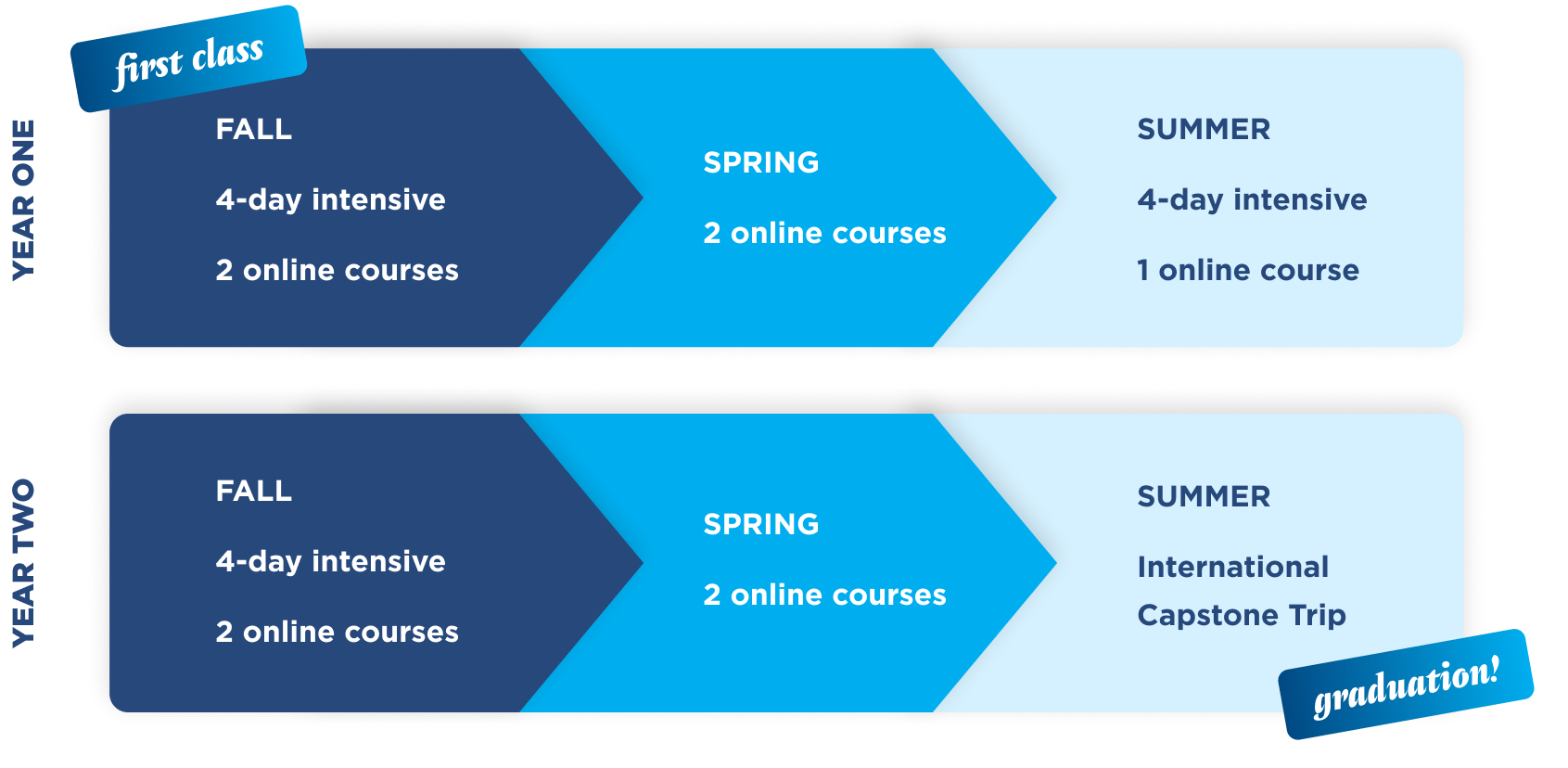Courses for Graduate Theology for Community Transformation
You can fit this into your life! Our graduate theology courses utilize a hybrid model. In the fall and summer, courses kick off with a 4-day in-person intensive, while the remainder of the semester takes place asynchronously online. Our spring courses are fully asynchronous online.
What if I can't attend a full-time class schedule? The M.A. can be pursued on a part-time basis following our certificate model. By taking one course at a time, you'll build towards a full degree in just over three years.
Integral Components
Spiritual Formation
During your time in our program, you will learn to thrive as a whole person in relationship with God, yourself, others and creation. Each course includes faith-formation practices and exercises to equip the whole person. You will engage formational experiences in the curriculum that can be adapted for the communities where you serve and lead.
Cultural Intelligence
Our program incorporates cultural intelligence (CQ), a globally recognized way of assessing and improving effectiveness in culturally diverse situations. It’s rooted in rigorous, academic research conducted across more than 100 countries. This is part of our commitment to Shalom and “a right ordering of relationships and actions resulting in the affirmation of human dignity and the flourishing of community. We believe that human diversity as attested to in Scripture is one expressive element of shalom and is an essential component of a Christian learning community such as ours.”
Important Dates
Fall 2025: August 25–December 13
Spring 2026: January 5–May 2
Summer 2026: May 14–August 22
Master of Arts in Community Transformation Courses

M.A. Course Descriptions
Year 1 Courses
FALL 1
Interpreting the Old Testament for Community Transformation
Negotiating Power and Conflict: Ancient and Medieval Theology
SPRING 1
Interpreting the New Testament for Community Transformation
Reforming Across Difference: The Story of Reformation to Renewals
SUMMER 1
Facilitating Spiritual Experiences: Formation in Time, Space and Cultures
Year 2 Courses
FALL 2
Ministering to People & Communities in Pain: The Bible, Justice and Shalom
Telling the Story: Creative Communication, Pedagogy and Design
SPRING 2
Living Our Common Belief: Theology in Practice
Building Effective Organizations for Community Transformation
SUMMER 2
Capstone: Beauty, Theology, Society: Journeying with the Church Then and Now
Certificate in Scripture, Theology and Transformation Courses

FALL
Interpreting the Old Testament for Community Transformation or Negotiating Power and Conflict: Ancient and Medieval Theology
SPRING
Interpreting the New Testament for Community Transformation or Reforming Across Difference: The Story of Reformation to Renewals
SUMMER
Facilitating Spiritual Experiences: Formation in Time, Space and Cultures
Graduate Theology for Community Transformation
- Admission for Graduate Theology for Community Transformation
Courses for Graduate Theology for Community Transformation
- Tuition & Aid for Graduate Theology for Community Transformation
- Intensives for Graduate Theology for Community Transformation
- Faculty for Graduate Theology for Community Transformation
Home




